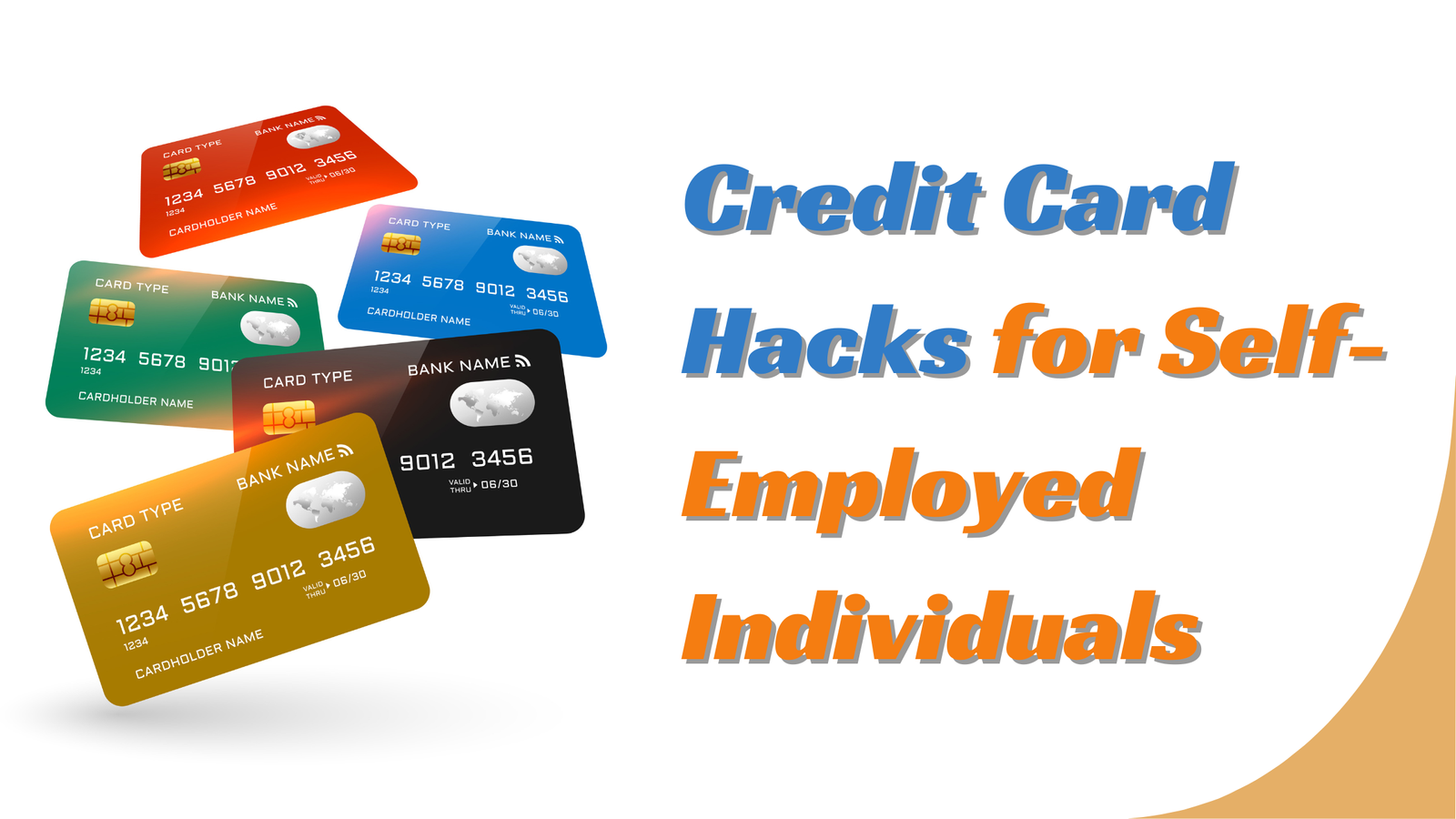Credit Card Hacks for Self-Employed Individuals: Maximizing Benefits and Rewards
- 1 Selecting the Right Credit Card
- 2 Using Multiple Credit Cards Strategically
- 3 Optimizing Rewards and Benefits
- 3.1 Utilize Dedicated Payment Portals:
- 3.2 Pay More Than the Minimum Amount:
- 3.3 Keep an Eye on Reward Offers:
- 3.4 Automate Your Bill Payments:
- 4 Avoiding Common Pitfalls
- 4.1 Don’t Chase Every Reward:
- 4.2 Conduct a Cost-Benefit Analysis:
- 4.3 Keep Your Information Updated:
- 4.4 Avoid Missing Payments:
- 5 Additional Tips for Self-Employed Credit Card Users
- 5.1 Leverage Introductory Offers:
- 5.2 Utilize Expense Management Tools:
- 5.3 Negotiate Credit Card Terms:
- 5.4 Regularly Review Your Credit Card Statements:
- 6 Conclusion
Credit cards offer numerous advantages to a diverse range of users, including self-employed individuals. As a business owner, effectively leveraging your credit card can help streamline cash flow, track daily expenses, and take advantage of interest-free periods. Here are some comprehensive tips and strategies to help you make the most of your credit card as a self-employed individual.
Selecting the Right Credit Card

Analyze Your Spending Patterns:
The first step in maximizing your credit card benefits is selecting one that aligns with your spending habits. For example, if your business involves frequent travel, a travel rewards card can be beneficial. On the other hand, if your expenses are more varied, consider a cashback or general rewards card that offers points on a range of purchases.
Consider Business Credit Cards:
Many banks offer credit cards specifically designed for business use. These cards often come with features like higher credit limits, rewards on business-related purchases, and tools to help manage expenses. Business credit cards can also help separate your personal and business finances, simplifying accounting and tax preparation.
Using Multiple Credit Cards Strategically
Categorize Expenses:
Using multiple credit cards for different types of expenses can help you maximize rewards and manage cash flow more effectively. For instance, you might use one card for inventory purchases, another for office supplies, and a third for travel expenses. This approach not only helps in tracking expenses but also ensures you get the most out of category-specific rewards.
Monitor Credit Utilization:
While using multiple cards, it’s essential to keep an eye on your credit utilization ratio, which is the amount of credit you’re using compared to your total available credit. Keeping this ratio below 30% can positively impact your credit score, making it easier to obtain financing or additional credit in the future.
Optimizing Rewards and Benefits

Utilize Dedicated Payment Portals:
Banks often partner with payment portals to offer special rewards and cashback on payments made through them. These portals can provide additional points or discounts on purchases, helping you save more. For example, using a specific portal for your utility payments might earn you extra cashback or reward points.
Pay More Than the Minimum Amount:
To avoid interest accumulation, strive to pay off your credit card balance in full each month. If that’s not possible, try to pay more than the minimum due. This approach reduces the principal balance faster, saving you money on interest in the long run.
Keep an Eye on Reward Offers:
Many credit card companies offer rotating categories or special promotions that provide higher rewards for specific types of purchases. Stay informed about these offers and adjust your spending accordingly to maximize your rewards. For instance, if your card offers 5% cashback on dining for a particular quarter, consider scheduling business lunches or dinners during that period.
Automate Your Bill Payments:
Automating your credit card bill payments ensures you never miss a due date, avoiding late fees and potential interest rate hikes. Most banking apps offer this feature, allowing you to set up automatic payments from your checking account.
Avoiding Common Pitfalls
Don’t Chase Every Reward:
It can be tempting to sign up for multiple credit cards to take advantage of various rewards programs. However, this can lead to debt accumulation and increased financial stress. Instead, focus on a few key cards that offer the best benefits for your spending habits and business needs.
Conduct a Cost-Benefit Analysis:
While some credit cards come with high annual fees, the rewards and benefits they offer might justify the expense. Conduct a thorough cost-benefit analysis to determine whether the perks outweigh the costs. If a card offers substantial rewards, travel credits, or other valuable benefits, the annual fee might be worth it.
Keep Your Information Updated:
Ensure that your personal and business information is always up-to-date on your credit card account. This includes your address, contact details, and business name. Keeping your information current helps avoid potential issues with billing, fraud detection, and account management.
Avoid Missing Payments:
Missing credit card payments can lead to hefty fees, increased interest rates, and damage to your credit score. Setting up automated payments can help you avoid this. Additionally, consider setting up reminders on your phone or calendar to ensure you stay on top of your payment schedule.
Additional Tips for Self-Employed Credit Card Users

Leverage Introductory Offers:
Many credit cards offer attractive introductory offers, such as 0% APR for a specified period or bonus rewards points after meeting a minimum spending requirement. Take advantage of these offers to save on interest or earn significant rewards, but be mindful of the terms and ensure you can meet the requirements without overspending.
Utilize Expense Management Tools:
Many business credit cards come with expense management tools that allow you to track and categorize your spending. These tools can be invaluable for budgeting, tax preparation, and financial planning. Make use of these features to gain better control over your finances.
Negotiate Credit Card Terms:
If you have a strong credit history and a good relationship with your bank, you might be able to negotiate better terms on your credit card. This could include a lower interest rate, higher credit limit, or reduced fees. Don’t hesitate to reach out to your card issuer to discuss your options.
Regularly Review Your Credit Card Statements:
Regularly reviewing your credit card statements helps you catch any unauthorized transactions or billing errors early. It also allows you to stay on top of your spending and ensure you’re maximizing your rewards.
Conclusion
As a self-employed individual, effectively managing your credit cards can provide numerous benefits, from improved cash flow and expense tracking to valuable rewards and interest savings. By selecting the right cards, using them strategically, and avoiding common pitfalls, you can make the most of your credit cards and support the growth of your business. An online credit card EMI calculator can further assist you in planning your repayments, ensuring you maintain financial stability while maximizing your credit card benefits.
Implement these tips and strategies to optimize your credit card usage, and watch as they contribute to the success and efficiency of your self-employed endeavours.

















